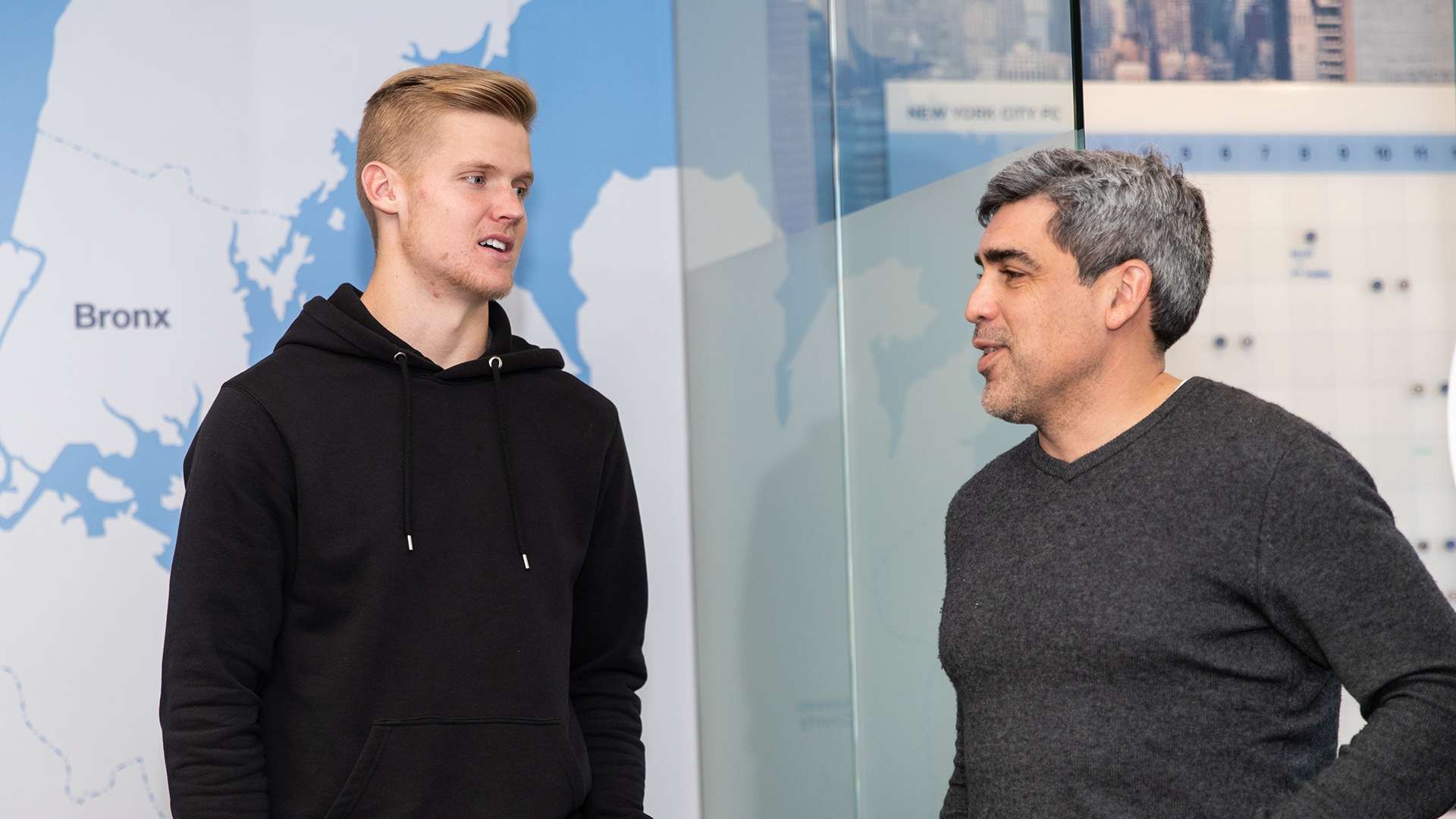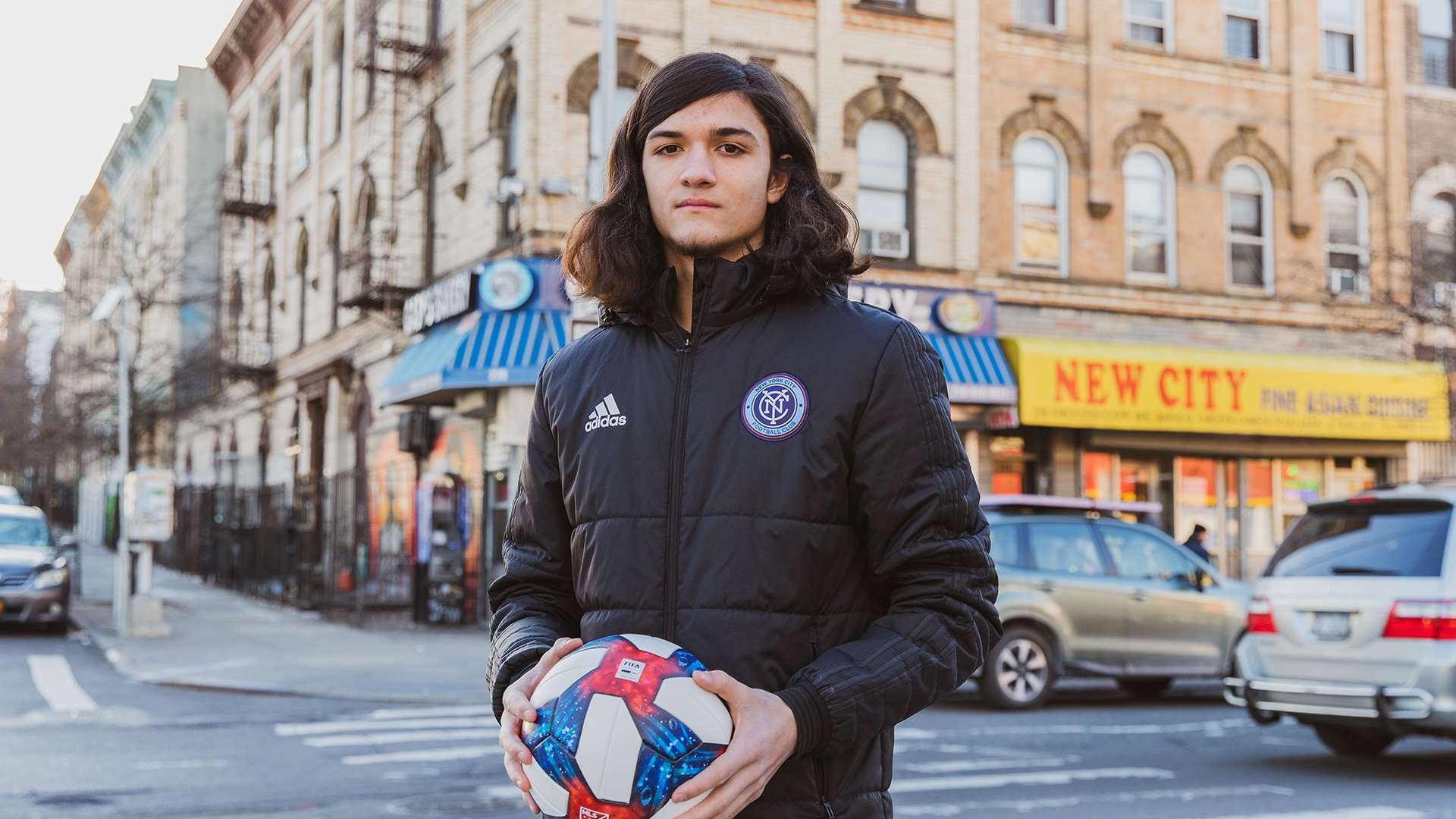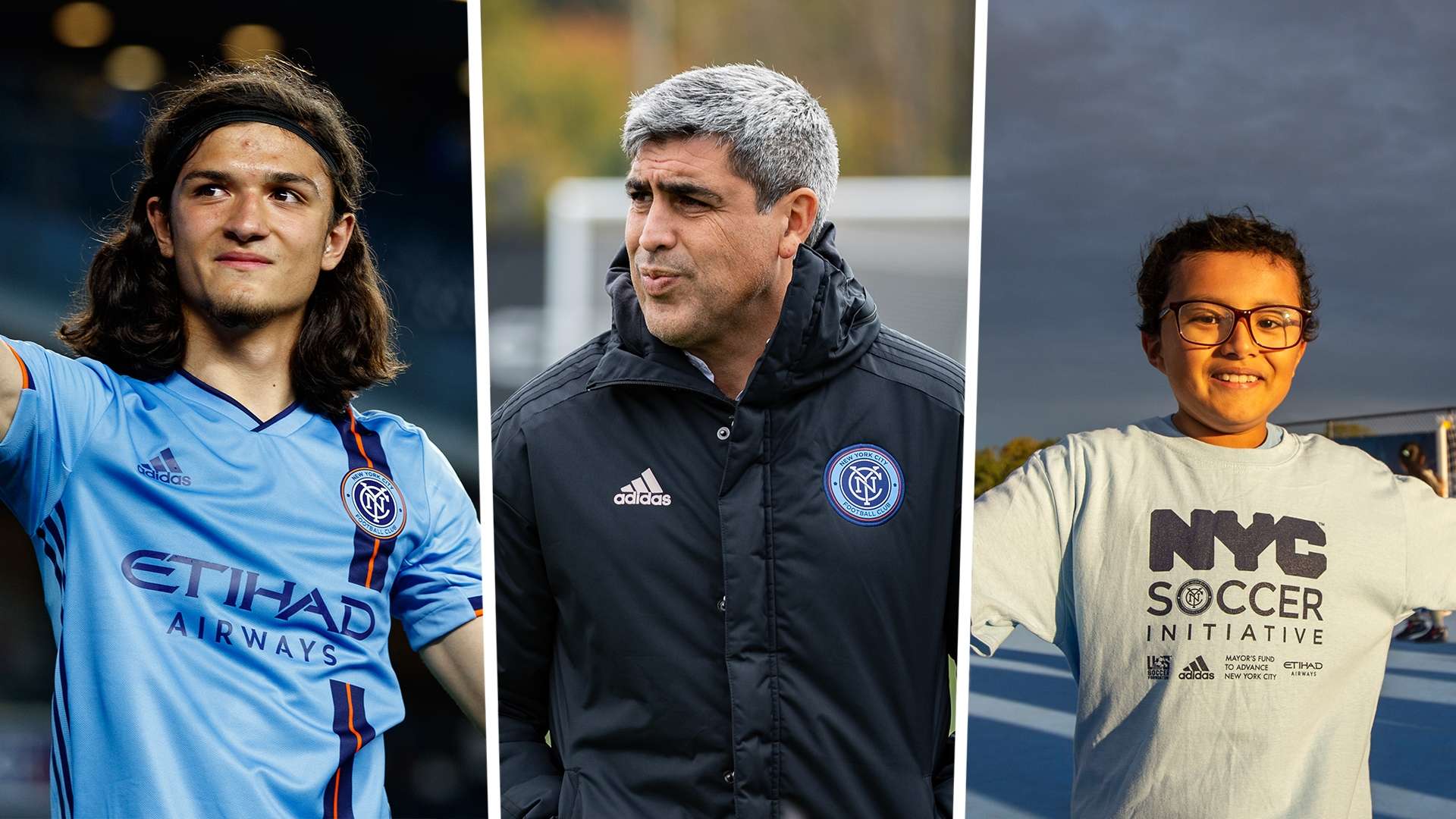U.S. national team legend Claudio Reyna’s upbringing was different to most in his home country.
While, for many, soccer is not a main sport, with basketball, American football and baseball all some way ahead, Reyna’s Argentine roots meant he was always destined to move away from the norm.
The 46-year-old, now sporting director at New York City FC, was immersed in the passion from a young age, something that would influence him massively before he went on to have a wonderful career all across Europe, one which he ended with a return to the USA with the New York Red Bulls.
“My dad immigrated from Argentina and he only knew how to teach me to play soccer in terms of sports growing up and having fun. He was the main reason I fell in love with soccer,” Reyna tells Goal .
“I also went to Argentina quite often and all I had to do was hang out in our living room during a game on TV or go to a stadium to realise how much it meant.
“I was 13 in 1986 when Argentina won their second World Cup and I remember my family, my dad, my uncles, crying, wrapped in Argentina flags.
“For me, it’s always been a sport that comes with passion and representing a club or a country and there’s really nothing like it.
“I grew up playing with my brother and my dad’s friends at the park from a young age. For me it was always fun.
“He was my coach growing up, our team was mostly made up of sons of immigrants from all over the world.
“At that time, soccer wasn’t a big sport at all, but for us it was everything.”
It’s been a long journey, but the rest of the country is now starting to see just what Reyna did all those years ago.
The former Manchester City midfielder was just eight years old when the North American Soccer League folded, something he recalls as ‘devastating’.
“I have some memories of going to the [New York] Cosmos games back at the Giants stadium and watching it,” he says.
“When the league folded it was devastating because just when I thought soccer was going to be in my backyard, it was taken away.

“At that time, we were left with very little opportunity to watch soccer on TV. We didn’t have many games, especially in the U.S., to watch.
“I remember the FA Cup would come on one channel every year, and the first league we could follow in the United States was Serie A.
“Every Sunday morning there would be a game and my dad would wake me up and that was it.
“The exposure players have today to watch games at any time all over the world is just an example of how times have changed and the growth of the sport.
“I couldn’t imagine, 20 years ago, [USA having] a league with stadiums and men’s and women’s national teams being followed by so many people.
“It’s a credit to so many people who have helped and continue to push when there were doubters of the sport.”
In his role at NYCFC, Reyna is now one of those giving back.
The U.S. relationship with soccer has long been a difficult one, something he and many others discuss at length in The Content Farm’s new documentary, Soccer in the City , which is set to premiere later on October 18 in D.C.
Reyna is speaking from an event for just one of the many projects NYCFC have launched in order to tackle these issues.
The club have just unveiled the 30th blue pitch of a 50-pitch initiative, in which the club is giving the five boroughs in New York safe spaces to play soccer.
It’s something that Brooklyn-born Justin Haak, who signed as a homegrown with the MLS club in January of this year, is extremely excited to see.
The 18-year-old midfielder admits there were never many places for him to enjoy the sport he loved when he was younger.
“My experiences were just like playing in the park with my friends,” he explains.
“We would get a small group together and there’s a park close to my house but there’s not really any soccer specific areas so we would play on the basketball court.
“Now, these soccer fields are in easy locations for young kids, after school or on the weekend they can just come by, play in a safe area and have fun.”

The promising youngster is someone New York City can be excited about, especially with him having developed such a close relationship with Reyna, one of the USMNT's greatest midfielders of all time.
“I first met Claudio when I was like 12 years old, going to the NYCFC training centres before they started,” Haak says.
“He played a little bit before I started watching soccer, but I knew about everything he’d done and what he’d accomplished.
“Since then, we’ve become much closer and have just developed a good relationship.”
It’s thanks to the work of NYCFC that players like Haak can continue to develop, with the teenager describing the impact of the club’s founding in 2013 as "huge" for the whole city.
“Everyone is just a lot more aware of the sport,” he explains.
“It’s really important to me that other kids that are growing up similarly to how I grew up can have the opportunity to play soccer at a high level, too.”
Reyna’s own experiences came at a different time to Haak’s, but they are similar in the lack of opportunities and spaces for soccer-crazed kids.
Now, the former United States skipper, capped 112 times at senior level, is using his experiences to target the urban communities that have been neglected for many years.
“As a soccer club in New York from day one we’ve been committed to the community,” Reyna says.
“You can see that there will be kids that have played soccer for many years and there will be players who kick a ball for the first time, but it’s about the smiles and that inspiration that these fields will give to them and it’s about community.
“We’ve built each in specific communities where you’re going to see, no doubt, a big impact in how it brings people together.
“In urban areas this is vital because there’s not enough safe and public places for kids to run around and play so it’s important to give back.
“For someone in my position and role, there’s a feeling that we can be pleased with where we’re at, but we also need to push forward and improve many different things in the sport.”
